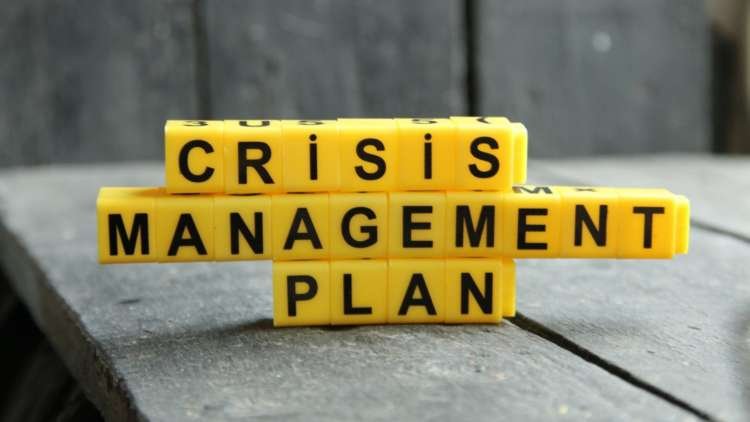Lessons in crisis management by greece
Published by linker 5
Posted on August 27, 2020
6 min readLast updated: January 21, 2026

Published by linker 5
Posted on August 27, 2020
6 min readLast updated: January 21, 2026

Key points include:
Lessons in crisis management by Greece
It was not widely noticed how Greece managed extremely well the early phase of the Covid-19 crisis. The odds were against the country as it came out of a decade-long debt crisis. Nevertheless, the government of Prime Minister Kyriakos Mitsotakis acted very swiftly on early signs of the virus spreading. The country imposed early lockdowns, closed schools, and requested non-essential businesses to halt operations as early as February, days before the first reported death from Covid-19. Statistics are praising the government’s action: at the end of July, Greece had recorded just over 4,700 cases and 210 deaths. However, the biggest challenges are yet to come. Managing the aftermath of the disappointing summer season and diversifying from tourism, continuing to implement the ambitious reforms and attracting private capital will be among the numerous items at the top of the government’s agenda. Will Greece be able to continue on its path towards ambitious reforms and development projects amidst an extremely uncertain environment?
From austerity to recovery to uncertainty
A little more than two years ago, Greece started its transition from Europe’s laggard to Europe’s strongest country based on GDP growth and economic dynamics. The government delivered the much-needed reforms, tax cuts and ambitious development plans opening up to institutional money chasing opportunities. Unfortunately, the blue-sky scenario halted abruptly when the Covid-19 crisis forced Prime Minister Mitsotakis to take extraordinary measures. For a country like Greece, already in a dynamic yet fragile state of recovery, such a crisis could severely impair future growth prospects.
Over-reliance on tourism
Tourism could prove to be Greece’s Achilles heel. Indirectly, approximately between a quarter and a third of Greece’s GDP comes from tourism. Closure of borders and planes stranded across the world will undoubtedly have a severe impact on tourism, with losses estimated at around EUR 10bn, according on a recent study by Ernst & Young. Although Greece did all it could to be “as open as possible” for the 2020 summer season, all efforts will likely be largely insufficient to “save” the season; providing damage control at best. July passenger traffic was only tracking between 15% and 25% compared to July 2019, and some hotels have decided not to open for this season, while a number of resorts are running at losses. Although nothing new, it is a reality check that over-reliance on a single sector is not viable on the long run.
However, this government, often praised to be one of the most pragmatic and efficient in the world, will not let this crisis go to waste. Firstly, the management of the initial phase of the crisis has shown how this small Mediterranean country is able to handle an extreme situation. A swift and efficient response, its robust crisis-management team setup, and transparent and open communication with its citizens were the key factors. Furthermore, the government took the opportunity to ramp up a long overdue project to bring digitalisation to SMEs and the state, doing this in a matter of weeks. SMEs are now able, through a single access point, to learn freely from tech-fluent companies exactly how to manage online advertisement. Citizens can obtain electronically notarised documents, as well as electronic medical prescriptions, while Greek employees quickly learned to work remotely and embrace digital communication tools. Such efforts on the digitalisation of the country will be supportive in attracting companies looking to set up headquarters in southern Europe.
Next Generation EU
On the financial front, Greece recently secured a large allocation of EUR 72bn, comprised of EUR 32bn in grants, from the EUR 750bn EU recovery package. The grant portion represents more than 17% of Greece’s GDP, the highest among EU countries. PM Mitsotakis has already put together a steering committee aimed at establishing a plan to make the best use of this fresh money. Additionally, the Prime Minister’s cabinet was reshuffled with a view to making the government more efficient at managing the EU funds. Finally, the country will also take precious inputs from the Pissarides committee report (a committee chaired by Cypriot Nobel laureate Sir Christopher Pissarides). The report aims at promoting the “systematic increases of income that will increase productivity, labour and investment”. Although commissioned before the Covid-19 crisis, this will lay the foundations for the country’s next chapter of growth.
Greece has done a tremendous job at controlling the epidemic on its territory, taking all the right decisions and implementing them without delay. Having one of the most competent leaderships in Europe, combined with strong approval ratings, is proving key to navigating this crisis. Greece has a very strong incentive to show that, after 10 years of economic downturn, it can handle this crisis well. In the long term, the benefits of current management will likely reverberate on a number of aspects of the economy and reinforce Greece’s credibility. The near future will be complicated, of course, but given what the country has achieved both before and during the Covid-19 crisis, there are many reasons to remain optimistic that it will emerge with its head held high and continue its successful growth trajectory. As Alex Patelis, Chief Economic Advisor to Prime Minister, summarised when discussing the current Greek mindset: “We are not trying to reinvent the wheel; this government was elected on an ambitious agenda of reforms”.
Infographie
Titre: Lessons in crisis management by Greece
EUR 72bn allocated to Greece
5123 coronavirus cases as of 7 Aug. 2020
82 bills voted through parliament
8% GDP reduction projected by OECD
-78.5% July international passenger arrival, year-on-year
Sources: EU NextGeneration, coronatracker.com, Hellenic Republic Newsletter, OECD, Axia Ventures.
Explore more articles in the Business category











